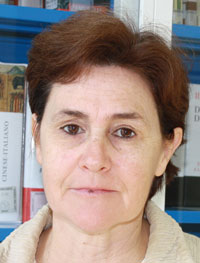QC challenges Cassation jurisdiction over foreign "lettori"

ROME- A crucial hearing will take place at the Italian Court of Cassation next Tuesday regarding three cases concerning the rights of non-Italian lecturers in Italy, or “lettori.” The upcoming hearing is the latest in a long running saga on the topic, as for the last 30 years the European Court of Justice has ruled in favour of the “lettori” suffering discrimination based on nationality. However, the Italian government’s propensity to modify its offending legislation has prevented progress being made.
The case concerning the University of Venice involves three members or former members of the teaching staff, British lecturer Irene McBain, and Arabic teachers Elie Kallas and Issam Labanyeh, who has since died but his heirs are fighting the case on his behalf.
Similarly, the hearing will judge the case of British lecturer Barbara Dawes against the University of Naples “Parthenope” and the case of Belgian employee, Nancy Delay, at the University of Florence.
In contrast to the other cases, Ms. Delay has already had her case ruled on by the European Court of Justice, which affirmed back in 2008 that Ms. Delay was entitled to the same treatment as national workers, and that the employment relationship must be considered as one single relationship regarding seniority increments, social security rights and pension.
Nevertheless, following the implementation of the so-called Gelmini law under the Berlusconi administration in 2011, which essentially legislates over the Head of the European Court of Justice, thus undermining its authority, Ms. Delay’s case continues to be unresolved, now appearing before the Italian Court of Cassation.
The three “lettori” cases had previously been sent before the Labour Section of the Court of Cassation in Rome, before court proceedings were suspended and consequently the cases were sent to the Cassation President, highlighting the need for the cases to be adjudicated by a full session of judges.
In the unlikely event that the Court of Cassation suspends its judgement once again and sends the cases to the European Court of Justice, the cases could take over two years to adjudicate, not taking into account the number of years it would then take for the ruling to filter down to the “lettori” currently being discriminated against.
Assuming that this does not happen, and the Court of Cassation gives a ruling on July 4, a binding precedent will be established and throughout Italy judges will follow it.
“It is clear that the Cassation is bound by Treaty rules to refer the case to the ECJ, but this would tie us up in further litigation for years,” said Chairman of the Association of Foreign Lecturers in Italy, David Petrie.
“Most of us are in our sixties, some have died, many more would die cheated of their wages and full pensions. We believe and are hopeful that the Cassation will reiterate the principles laid down by the ECJ and spell out how these principles are to be put into practice,” he added.
Similarly, legal observers have commented that under Article 267 of the Treaty of Rome, the cases should have initially been referred to the European Court of Justice.
“…. the Italian Supreme Court of Cassation should feel itself duty bound to seek a preliminary ruling under Article 267 of the Treaty on European Union because the Supreme Court of Cassation is a court within the meaning of Article 267 “against whose decisions there is no judicial remedy under national law”. But there is no guarantee that the Italian Supreme Court of Cassation will come to that conclusion,” said Peter Ferguson QC, in support of the lecturers’ lawyer Professor Avvocato Lorenzo Picotti.
UK Minister for Europe, Sir Alan Duncan, had previous stated in March 2017 that Britain would intensify calls for Italy to end its “long running discrimination” against foreign lecturers with regards to equal pay, duration of contract, access to jobs and pension packages.
Likewise, UK Minister for Justice David Lidington has described Italy’s treatment of around 100 British lecturers in Italy as “both illegal and immoral.”
jj




